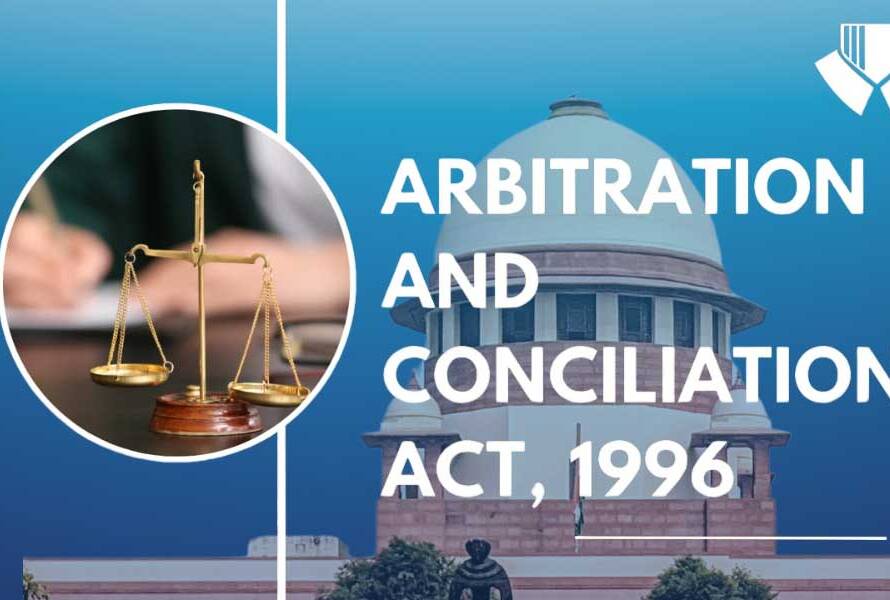Madras High Court Rejects Applications filed by Netflix in Copyright Infringement Suit instituted by Wunderbar Films Private Limited Over Nayanthara Documentary
by Krunal Mehta, Associate Partner, Karen Koya, Associate
Dispute/ Applications filed by Netflix:
In a recent ruling, the Hon’ble Madras High Court has dismissed 2 (two) Applications filed by Los Gatos Production Services India LLP (“a unit of Netflix”) (“Netflix”) in the Suit instituted by Wunderbar Films Private Limited against actress Nayanthara, her husband Vignesh Shivan, Netflix & others. Wunderbar Films Private Limited (“Wunderbar Films”) is the film production house established by actor and producer Dhanush. The dispute giving rise to the Suit arose over an alleged copyright infringement concerning a Netflix documentary viz. “Nayanthara: Beyond the Fairy Tale”, which purportedly used Behind the Scenes (BTS) footage from the film viz. “Naanum Rowdy Dhaan”. Wunderbar Films who is the producer of the film “Naanum Rowdy Dhaan” claims that the Behind the Scenes (BTS) footage was allegedly included without permission and the same amounts to infringement of their copyright in the film.
The 2 (two) applications filed by Netflix broadly sought the following reliefs:
- Application under Order VII Rule 11 of the Code of Civil Procedure, 1908 thereby seeking rejection of the Plaint, as Wunderbar Films had not complied with Section 12A of the Commercial Courts Act, 2015 which mandates the requirement of pre-institution mediation.
- Application under Order XIV Rule 8 of the O.S. Rule read with Clause XII of the Letters Patent Act read with Order III Rule 1 of the Madras High Court Original Side Rules thereby seeking revocation of leave to sue granted to Wunderbar Films on the grounds that: (i) the Suit filed under Section 62 of The Copyright Act, 1957 cannot be entertained by the Hon’ble Madras High Court as the office of Wunderbar Films is outside the jurisdiction of Court; (ii) no part of the cause of action to sue Netflix arose within the jurisdiction of Court; and (iii) as Wunderbar Films having chosen to file the Suit under Section 62 of The Copyright Act, 1957 is barred from seeking leave to sue under Clause XII of the Letters Patent, in view of the Doctrine of Election.
Arguments advanced by Netflix:
- That the cause of action arose in the year 2020 itself, when the clippings pertaining to the Behind the Scenes (BTS) footage from the film “Naanum Rowdy Dhaan” was made known to Wunderbar Films. Despite the same, the Suit came to be filed only on 25th November 2024. Therefore, there is no requirement for urgent interim reliefs as prayed in the Suit. Accordingly, filing of the commercial suit without instituting pre-suit mediation is barred by law as per the provisions of Section 12A of Commercial Courts Act, 2015.
- That the alleged copyright violation did not exist as the BTS footage was not owned by Wunderbar Films but by individuals who were not commissioned by Wunderbar Films to shoot the Behind the Scenes (BTS) footage.
- That the Suit filed under Section 62 of The Copyright Act, 1957 cannot be entertained as Wunderbar Films has its office outside the jurisdiction of the Hon’ble Court. Additionally, no part of cause of action to sue Netflix arose within the jurisdiction of Court, as Netflix is having their office only at Mumbai.
- That once a Suit is filed under Section 62 of The Copyright Act, 1957, the right to apply under Section 20 of the Code of Civil Procedure, 1908 gets excluded, and as a consequence Clause XII of the Letters Patent also gets excluded. That Wunderbar Films having chosen to file the Suit under Section 62 of The Copyright Act, 1957 is barred from seeking leave to sue under Clause XII of the Letters Patent, in view of the Doctrine of Election.
In support of their arguments, Netflix relied upon the following judgments:
| Sr. Nos. | Particulars |
|---|---|
| 1) | Indian Performing Rights Society Ltd. vs. Sanjay Dalia & Another [2015 (10) SCC 161] |
| 2) | Nagubai Ammal & Others vs. B. Shama Rao & Others [AIR 1956 SC 593] |
| 3) | T. Arivandandam vs. T.V. Satyapal & Another [(1977) 4 SCC 467] |
Arguments advanced by Wunderbar Films:
- That the cause of action for filing the Suit arose when Wunderbar Films became aware that the Behind the Scenes (BTS) clipping of the film “Naanum Rowdy Dhaan” was shown in the trailer of the documentary on its YouTube Channel only on 9th September 2024. That, Wunderbar Films issued a notice to Netflix on the same day itself. Thus, pre-suit mediation under section 12A of the Commercial Courts Act, 2015 was not required as the Suit sought urgent interim reliefs.
- That major part of the cause of action arose in Chennai as the film “Naanum Rowdy Dhaan” produced by Wunderbar Films was released in Chennai. Further agreements/artist contracts were signed between the parties in Chennai, and the infringing documentary was accessible in Chennai.
- That the Suit filed by Wunderbar Films is both under section 62 of The Copyright Act, 1957 as well as under Order IV of the Madras High Court Original Side Rules thereby making Clause XII of the Letters Patent applicable.
- That the Doctrine of Election does not apply in the present Suit as Wunderbar Films had only filed one Suit under multiple legal provisions which is permissible.
| Sr. Nos. | Particulars |
|---|---|
| 1) | Indian Performing Rights Society Ltd. vs. Sanjay Dalia & Another [2015 (10) SCC 161] |
| 2) | Arjun vs. Balaji B [Madras High Court Order dated 20.09.2023 in C.S. (Comm. Div.) Dr. No. 56111 of 2018] |
| 3) | Duro Flex Pvt. Ltd. vs. Duroflex Sittings System [AIR 2015 Mad 30] |
| 4) | Sulphur Mills Ltd. vs. M/s. Dayal Fertilizers Pvt. Ltd. & Ors. [Judgment of Division Bench of Madras High Court dated 11.11.2020 in O.S.A. Nos. 38, 40, and 42 of 2020 in C.M.P. Nos. 1518, 1538 and 1544 of 2020] |
| 5) | Ultra Media and Entertainment Pvt. Ltd. vs. Y-Not Films LLP & Another [2024 SCC Online Bom 3085] |
Decision/ Held:
- Leave under Clause XII of the Letters Patent is rightly obtained – The Hon’ble Court held that, as per averments made in the Plaint, a substantial part of the cause of action arose in Chennai. The Hon’ble Court noted that, the Artist Agreement was signed in Chennai, the film “Naanum Rowdy Dhaan” produced by Wunderbar Films was released in Chennai, the allegedly infringing documentary was accessible in Chennai via Netflix and the fact that all Defendants, except Netflix were based in Chennai. The Hon’ble Court further noted that, Wunderbar Films has rightly sought and has obtained leave of the Hon’ble Court to institute Suit against Netflix since they are having their registered office in Mumbai.
- Doctrine of Election cannot be applied in the present case – The Hon’ble Court held that Wunderbar Films has chosen to file the Suit both under Section 62 of the Copyright Act, 1957 as well as under Order IV Rule 1 and 2 of the Madras High Court Original Side Rules by way of abundant caution. The doctrine of election will apply when a party has 2 (two) remedies and choses to exercise 2 (two) remedies separately. However, the same is not the case in the present Suit.
- Pre-Suit Mediation was not mandatory in the present case – The Hon’ble Court noted that since the alleged infringement was ongoing and involved intellectual property rights, Wunderbar Films had a legitimate urgency in seeking urgent reliefs. Thus, the pre-suit mediation under Section 12A of Commercial Courts Act, 2015 was not mandatory. The Hon’ble Court also noted that rejecting the Suit at the preliminary stage due to non-compliance with pre-suit mediation does not arise.
Conclusion:
From the judgment passed by the Hon’ble Madras High Court, it can be concluded that:
- Courts may retain jurisdiction if a substantial part of the cause of action arises within its territory, even if some Defendants are outside. Courts prioritise locations where evidence, parties, and important events occur;
- Pre-suit mediation under Section 12A of Commercial Courts Act, 2015 is not mandatory when urgent interim relief is sought to prevent irreparable harm (e.g., ongoing infringement); and
- Combining statutory and common law remedies in a single suit is permissible and the doctrine of election may not apply.





